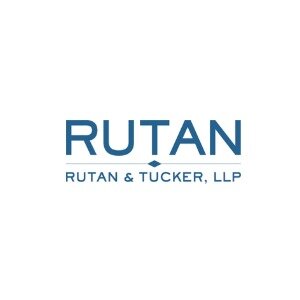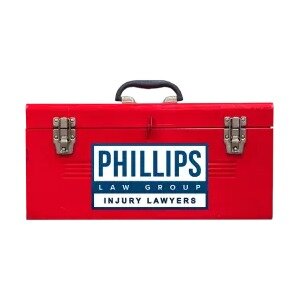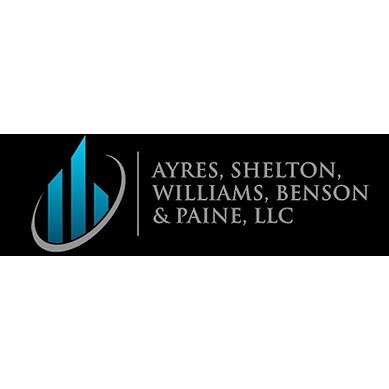Best Renewable & Alternative Energy Lawyers in United States
Share your needs with us, get contacted by law firms.
Free. Takes 2 min.
Or refine your search by selecting a city:
List of the best lawyers in United States
About Renewable & Alternative Energy Law in United States
Renewable and alternative energy law in the United States encompasses the set of legal frameworks, policies, and regulations that govern the development, use, and promotion of energy sources like solar, wind, geothermal, hydroelectric, and bioenergy. These laws are designed to reduce dependency on fossil fuels, lower greenhouse gas emissions, and promote a more sustainable and secure energy landscape. As both federal and state governments encourage clean energy growth, laws have evolved to cover issues related to permitting, incentives, grid access, property rights, environmental compliance, and financing. Navigating this complex field often requires understanding how these different rules interact at both national and local levels.
Why You May Need a Lawyer
Individuals, companies, and organizations working with renewable or alternative energy often face several legal challenges. You may need legal assistance in the following common situations:
- Developing or financing a solar, wind, or other renewable energy project
- Negotiating power purchase agreements or selling excess energy back to the grid
- Securing permits and complying with zoning, land use, and environmental regulations
- Accessing federal, state, or local incentives, grants, or tax credits
- Resolving disputes over property rights, easements, or utility interconnection
- Protecting intellectual property related to renewable energy technology
- Meeting regulatory requirements for energy storage or distribution
A qualified lawyer can help interpret complex regulations, draft and review contracts, assist with negotiations, and represent you in administrative proceedings or litigation.
Local Laws Overview
Renewable and alternative energy projects in the United States are subject to a patchwork of federal, state, and local regulations. Key aspects of local laws include:
- Permitting and Zoning - Local governments may set requirements for the construction and operation of renewable energy systems, which can include noise, height, setback, and aesthetic standards.
- Net Metering and Interconnection - States have different rules regarding how residential and commercial users can connect renewable energy systems to the electricity grid and receive credit for energy they supply.
- Renewable Portfolio Standards - Many states require utilities to source a certain percentage of their electricity from renewable sources, which can drive demand and investment.
- Incentive Programs - Local and state governments often offer grants, rebates, or tax incentives for renewable energy installations.
- Environmental Compliance - Projects may need to comply with local environmental protection laws, including assessments for wildlife, water use, and land disturbance.
Understanding the specific rules in your locality is crucial, as they can significantly affect project feasibility, costs, and timelines.
Frequently Asked Questions
What is considered renewable or alternative energy in the United States?
Renewable energy includes sources that are naturally replenished, such as solar, wind, hydroelectric, geothermal, and biogas. Alternative energy also covers non-traditional sources that reduce environmental impact compared to fossil fuels.
Do I need a permit to install solar panels or a wind turbine on my property?
In most cases, local and state permits are required before installing renewable energy systems. These permits verify compliance with zoning, safety, and building codes.
What incentives are available for renewable energy projects?
Federal, state, and local governments may offer tax credits, rebates, grants, or loans for renewable energy installations. Eligibility and amounts vary based on location and project type.
How do net metering laws work?
Net metering laws allow property owners with renewable energy systems to receive credits or payments for excess electricity sent back to the utility grid. The specifics depend on state regulations and utility policies.
Can homeowners associations restrict renewable energy installations?
Some homeowner associations have rules that limit or regulate renewable installations. However, some states have laws that protect homeowners’ rights to install renewable systems, subject to certain conditions.
What are Renewable Portfolio Standards and how do they affect me?
Renewable Portfolio Standards require utilities to obtain a set percentage of their electricity from renewable sources. This can create additional demand and incentives for renewable energy development in participating states.
What happens if my renewable energy system causes a dispute with a neighbor?
Disputes may arise over issues like property boundaries, shading, or noise. In such cases, you may need legal help to resolve conflicts through mediation or court proceedings, and to ensure compliance with local laws.
Are there special rules for commercial or utility-scale renewable energy projects?
Large-scale projects face additional layers of regulation, including environmental impact assessments, land use approvals, and grid interconnection agreements. Legal counsel is often necessary to manage these complex requirements.
How do I finance a renewable energy project?
Financing can come through loans, grants, power purchase agreements, or third-party ownership models. Each option has legal and financial implications that should be reviewed with an attorney.
What role do federal agencies like the Department of Energy and EPA play?
Federal agencies establish national renewable energy policies, manage incentive programs, and enforce environmental laws that affect energy projects. They provide guidelines and oversight for the industry nationwide.
Additional Resources
For more information or assistance, consider the following resources:
- U.S. Department of Energy (DOE) - Offers information on funding, policies, and technical assistance related to renewable energy.
- Environmental Protection Agency (EPA) - Provides guidelines on environmental compliance and regulations impacting energy projects.
- Database of State Incentives for Renewables and Efficiency (DSIRE) - Comprehensive resource for federal and state incentives and policies.
- National Renewable Energy Laboratory (NREL) - Conducts renewable energy research and publishes reports helpful for project planning.
- State Energy Offices - Each state has an energy office that implements local programs and provides regulatory information.
- American Council on Renewable Energy (ACORE) - Industry organization with education and advocacy resources.
Next Steps
If you need legal assistance with a renewable or alternative energy matter, take the following steps:
- Identify the specific issue you are facing, such as permitting, contracts, or incentives
- Gather relevant documents and information about your project or concern
- Research local laws and potential incentives in your area
- Contact a lawyer who specializes in renewable and alternative energy law for a consultation
- Prepare a list of questions or concerns to discuss with your legal advisor
- Follow up on recommended actions and maintain clear communication with your attorney throughout your project
Working with a knowledgeable lawyer can help you navigate regulatory obstacles, reduce risks, and maximize the benefits of renewable energy projects in the United States.
Lawzana helps you find the best lawyers and law firms in United States through a curated and pre-screened list of qualified legal professionals. Our platform offers rankings and detailed profiles of attorneys and law firms, allowing you to compare based on practice areas, including Renewable & Alternative Energy, experience, and client feedback.
Each profile includes a description of the firm's areas of practice, client reviews, team members and partners, year of establishment, spoken languages, office locations, contact information, social media presence, and any published articles or resources. Most firms on our platform speak English and are experienced in both local and international legal matters.
Get a quote from top-rated law firms in United States — quickly, securely, and without unnecessary hassle.
Disclaimer:
The information provided on this page is for general informational purposes only and does not constitute legal advice. While we strive to ensure the accuracy and relevance of the content, legal information may change over time, and interpretations of the law can vary. You should always consult with a qualified legal professional for advice specific to your situation.
We disclaim all liability for actions taken or not taken based on the content of this page. If you believe any information is incorrect or outdated, please contact us, and we will review and update it where appropriate.
Browse renewable & alternative energy law firms by state in United States
Refine your search by selecting a state.

















